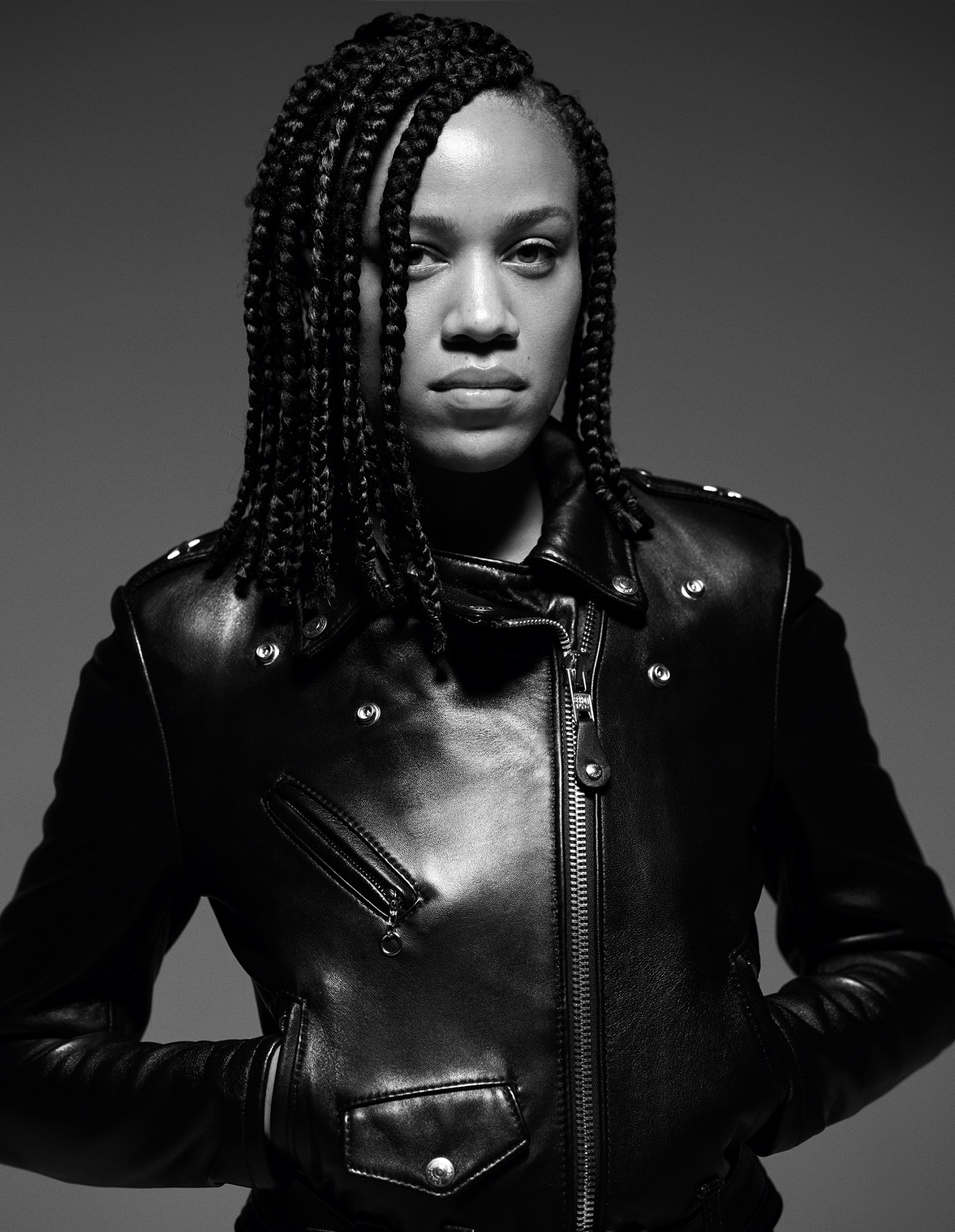This story originally appeared in i-D’s ‘Rihannazine‘ Special Edition, no. 01, 2020. Order your copy here. For this one-off project, Rihanna put a series of questions to the women shaping culture today, and invited them to share their visions for 2020.
Can you introduce yourself?
I’m Ashley James, and I’m a curator. I work to present art to the largest possible public that I can. To be able to do that is an honour, a privilege, and something I don’t take lightly.
What do you think your biggest personal or professional success has been so far?
I was recently appointed as an associate curator at the Guggenheim, which is a big professional accomplishment, and such an honour. But also, I’m the daughter of Jamaican immigrants, first generation, so anything I do that makes them proud of me is something I would define as success. I came to New York in 2005 for college, I look back at the 17-year-old who arrived here, and I’m amazed at where I am now.
What would you say was your biggest failure?
My biggest failure? Somehow I ended up here right now, so evidently the failures added up to this, which I can accept. I’ve had a lot of failures, I think. The only way through failure is to recognise that it isn’t the end; to see what you would have done differently, and what it was about those circumstances that kept you from doing things differently.
As we’re heading into 2020, what are you taking with you into this year, and what are you leaving behind in 2019?
I’m excited about 2020, and – related to the question of failure – I’ve been thinking a lot about the highs and lows of this year. I’m really thankful for the people who’ve supported me, and I’m taking them with me into the new year. I am leaving behind hesitation and doubt.
If you could ask Rihanna one question, what would it be?
As a curator, and as a Jamaican-American, I’ve been thinking a lot about the Fenty releases, and the artists that have inspired those rollout campaigns. There really seems to be the sense of a black diasporic aesthetic inspiring it – obviously, Rihanna is Bajan. I’m just wondering if there was a thought process behind the selection of those artists that she wants to be in conversation with, and what she’s learned about her own aesthetic, having done those collaborations.

Ashley’s 2020 manifesto
This past year found me thinking a lot about generosity and generations. This has meant reflecting on the networks of people (some of whom I know personally, others solely through writing) that have formed the various fields of knowledge and making in which I’m engaged – contemporary art and curation, art history, Black studies, literature, gender studies and all of their necessary entanglements. As I grow older and progress in my career, it’s become increasingly important for me to name these people and these lineages, not only to express my personal gratitude both to and for them, but also to do my part in ensuring that the historical record is maintained and remains clear. So, in 2020 I aim to continue to refine answers to these questions: In what ways am I writing and making with historical networks in mind? In what ways am I engaging with these networks accessibly and transparently?
Among these literary progenitors is a luminary we lost this past year, the late Toni Morrison – a writer who, among many other things, reminds me of what is at stake for the future generation. I find it interesting and significant that, even before her passing, a particular quote of hers (drawn from an interview in O, The Oprah Magazine) went viral on social media: “I tell my students,” Morrison spoke, “‘When you get these jobs that you have been so brilliantly trained for, just remember that your real job is that if you are free, you need to free somebody else. If you have some power, then your job is to empower somebody else. This is not just a grab-bag candy game.’”
Aphorisms resonate, but I think this piece of advice, this ideology, particularly struck a chord with many because it articulated an ethos around responsibility, power, education and ethics that many grapple with as they advance in their careers (whether or not they ultimately heed this call to action). For me specifically, as a black woman, who knows well the fought-for intellectual ground on which I walk, it’s important to actively consider the groundwork I can lay for young people – especially young black women who are forging careers in the arts. It’s no coincidence that some of the greatest thinkers I look to have also had generous pedagogical and mentoring practices. Just as I seek to keep the past in focus, I am wondering how I can be more intentional about the future. In what ways, both formal and informal, am I working to empower others?
Credits
Photography Mario Sorrenti
Styling Alastair McKimm
Hair Duffy at Streeters.
Make-up Kanako Takase at Streeters using ADDICTION Beauty.
Nail technician Alicia Torello at The Wall Group using Chanel.
Set design Jack Flanagan at The Wall Group.
Colourist Lena Ott for Suite Caroline.
Lighting technician Lars Beaulieu.
Photography assistance Kotaro Kawashima, Javier Villegas and Jared Zagha.
Digital technician Johnny Vicari.
Styling assistance Madison Matusich and Milton Dixon.
Hair assistance Lukas Tralmer, Juli Akaneya and Allie J.
Make-up assistance Kuma and Tomoyo Shionome.
Set design assistance Colin Walker and Joe Arai.
Production Katie Fash.
Production coordinator Layla Némejanski.
Production assistance Fujio Emura.
Casting director Samuel Ellis Scheinman for DMCASTING.
Casting assistance Cicek Brown for DMCASTING.
